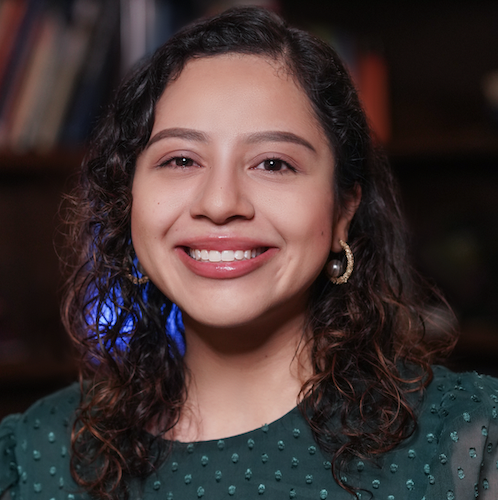Jocelyn Bravo signed into the Zoom interview for this project at 5:00 PM, just having ended a long day at work. She also had a training scheduled to start at 6:00 PM. For her, this was all in service of balancing her many roles, advocating for the interests of Brighton Park Neighborhood Council and the advocacy group she works for at her day job, Young Invincibles.
If I could go back in time, I would tell my younger self to get involved. That’s it. Just get involved in your community.
I came to the US at four years old. I didn’t know English. I used to hear my cousins speak English and not know what they were saying. It was really confusing at the time. Luckily, my school had a program where they would have someone go to your house to teach you. At first, I learned in both Spanish and English classes, and eventually I was only in English classes at school.
I never thought about my immigration status until I was twelve. I participated in the science fair, and when I was registering for my project, they asked for my social security number. When I heard that, I finally realized the importance of that number.
And I remember feeling very scared, you know, like when your blood rushes out of your face, and you feel very cold? I never thought about keeping it a secret; I didn’t think it was bad or good or anything, it just was. But in that moment, I felt like it was bad, to be undocumented. My not having a social security number really felt like a secret had been let out. It also felt limiting. I gave up on applying to a few high school programs because a social security number was required. Once I became a permanent resident as a teenager, I could finally give that number and had access to more opportunities.
When I got into college, my world shifted. Having grown up undocumented, no one ever told me ‘you can vote,’ ‘you can be involved in,’ or ‘you can be a public servant.’ That wasn’t in my realm of possibility. I just stumbled upon all of this. I got involved with the student government thinking it’d be like student council. I thought—I’ll plan events; it’ll be super fun.
It was completely different.
People were asking me what my platform was, what my initiative was, and it all seemed strange. But I liked working with people and looking for solutions to problems. Then the 2020 presidential campaign started and I was inspired by the Bernie Sanders campaign and became a student organizer for him on campus, organizing phone banks, attending canvasing events, hosting tables on campus, and just talking to students. I went to Iowa twice during the primary, to talk to people. I really felt a sense of empowerment, like nothing I’ve ever felt before, the sense of community, people, strangers, coming together based on shared values, dreams, and goals.
My journey in activism is new. Even though I’m still young, I wish that I had grown up seeing my parents as union members or community leaders. I wish I would’ve learned about collective power earlier on. Despite that, I also think that it’s never too late to get involved and fight for what’s important to you. I think part of being an activist is about believing, having a true belief, in a better world. That’s also stressful since there are so many issues: immigration, voting, civic engagement, environmental justice, corporate greed, war, class, race, gender. It’s hard to know what to focus on.
Activism can give us a sense of purpose, a sense of community, in a group working towards a common goal, trying to positively influence the world. Providing those opportunities and that community, a way to lift each other up, is so important. Something that a lot of individuals go through when they’re not born in the US is the lack of belonging, a lack of identity. I really like being able to be with people who live in the area that I do, have shared experiences, so that we can lift each other up through our own perspectives.
But there’s a lot of frustration, too. Part of activism, providing direct service to the community, is sometimes feeling that we’re not always addressing the root problem. It’s really pushed me to pursue the area of policy in terms of community, because whatever policy we make needs to be guided by those directly impacted by it. I also think that activism requires courage. I’m working on it and I think that anyone can too. The courage to stand up and speak out.
